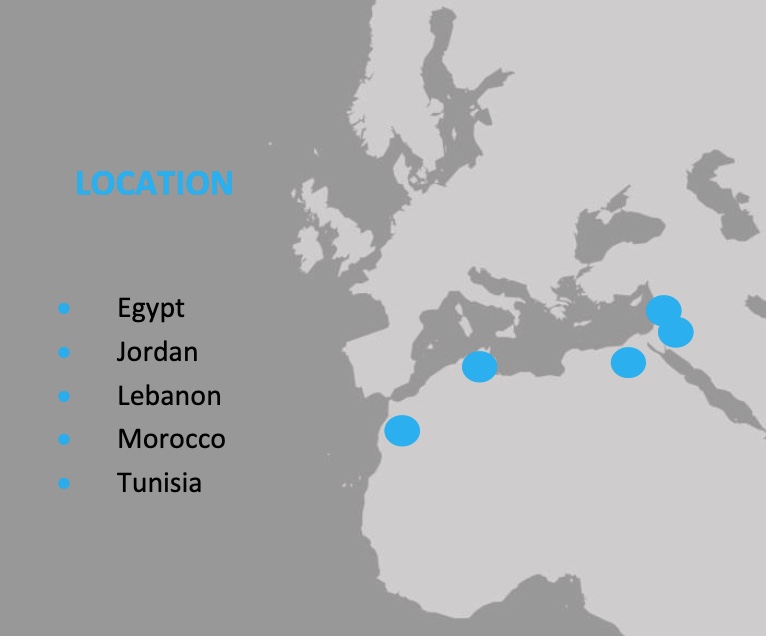
SEMed Private Renewable Energy Framework “SPREF”
Context and objectives
The SEMed Private Renewable Energy Framework (SPREF) aimed to break down barriers preventing the development of private renewable energy markets in Morocco, Tunisia, Egypt, Jordan and Lebanon. The framework provided efficient financing mechanisms and technical support for the implementation of renewable energy projects in the region. The SPREF helped countries meet renewable energy targets and avoid CO2 emissions, benefitting international and local energy companies, offtakers (companies or individuals who purchase electricity directly from the producer) and policymakers in Egypt, Jordan, Morocco, Tunisia and Lebanon.
This project was estimated to avoid 780,000 tons of CO2 emissions annually.
Supported the development of renewable energy contributing to the renewable energy targets of each country.
Provided efficient financing mechanisms and technical support for the implementation of renewable energy projects.
Broke down barriers preventing the development of private renewable energy markets in the beneficiary countries.
Location

Key figures
Duration:
2015-18
CO2 emissions avoided per year:
780K tons
Total cost:
€836M
Countries:
4
Financial contribution
Beneficiaries
The SPREF benefits international and local energy companies, as well as offtakers and policymakers in Egypt, Jordan, Morocco and Tunisia.
Key actions
Analysis of beneficiary countries to identify opportunities for private investment in renewable energy and to provide a basis for further policy dialogue initiatives to address barriers.
Sharing the findings of the country analyses in a regional conference with a broader audience and identification of specific policy dialogue activities.
Offer technical assistance for project preparation.
Debt and equity financing to private developers for investments in renewable energy.
Results
An increase in the amount of electricity generated from renewable resources by private companies.
An increase in the number of private sector players in the electricity sectors of the four countries.
Supported development of renewable energy, contributing to the renewable energy targets set by beneficiary countries.
780,000 tons of CO2 emissions avoided annually.
